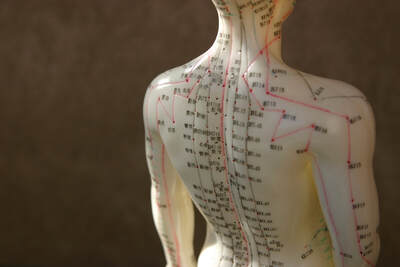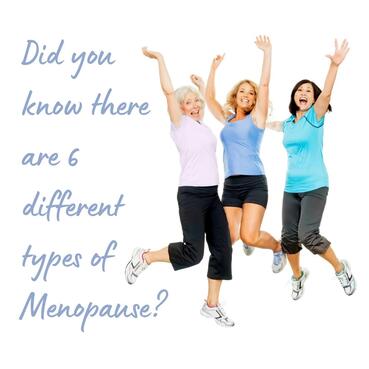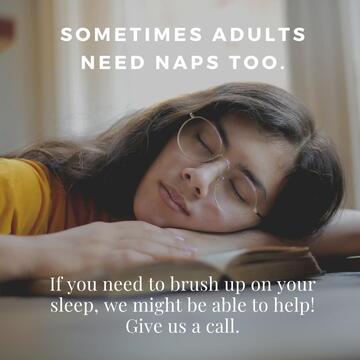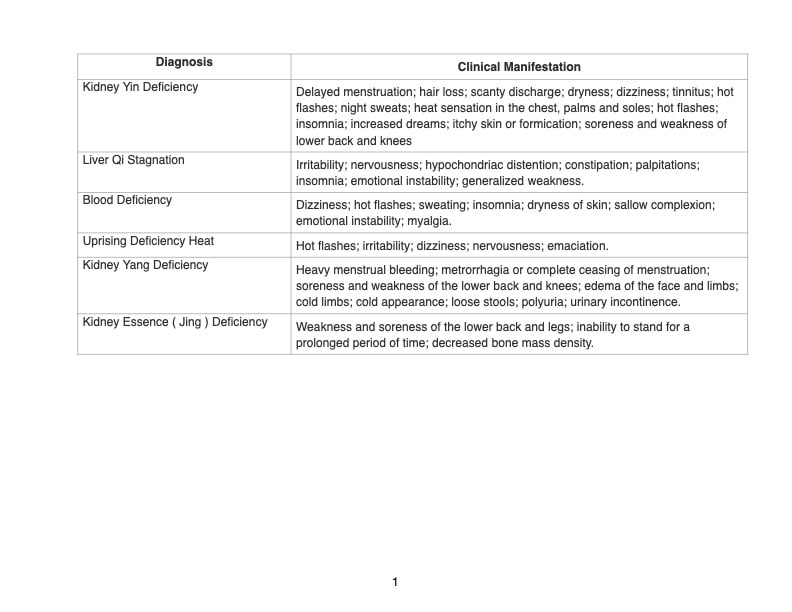 Acupuncture is part of Traditional Chinese Medicine (TCM) and is practiced in many different forms which include herbal remedies, cupping, and massage, which have all been used for thousands of years. The basis of TCM is the idea of qi, the body’s vital energy. TCM treatments promote the movement of qi throughout the body in order to help bring balance back to the body. The goal of acupuncture is to correct this imbalance which can cause a variety of ailments and conditions that you may currently have. Acupuncture uses very thin needles (which have been compared to being as small as cat whiskers) that stimulate pressure points and other areas of your body. It stimulates qi by placing needles in specific spots, often along meridians. Meridians are the channels that qi travels in the body. Acupuncture can help with many health conditions, including: ● Arthritis ● Chronic pain, including joint pain ● Depression ● Headaches and migraines ● Trouble sleeping and insomnia ● Nausea and digestive trouble ● Back pain and sciatica ● Stress and anxiety ● Tinnitus (ringing ears) ● Weight loss Below are the top five ways that acupuncture can help 1. Relieves Pain Acupuncture can help alleviate many types of pain that may range from headaches and migraines to neck and back pain. These studies have shown its effectiveness in treating lower back pain, migraines, tension headaches, and knee pain. Acupuncture works differently for everybody. For some, a single treatment can alleviate symptoms for several months while others need a more routine treatment schedule. 2. Improved Sleep Another thing that Acupuncture can help improve is sleep and insomnia. Scientists believe that acupuncture increases the production of brain chemicals that promote relaxation, thus allowing for better sleep. 3. Uplift Mood Acupuncture can help with improving mood, including helping with depression, stress, and anxiety. The needles from acupuncture treatment release endorphins in the body. Endorphins are hormones that provide a boost in mood, encouraging happiness and relaxation. 4. Help the Heart Acupuncture is also good for your heart due to the relaxation and stress reduction that one achieves from the treatments, which are also known to reduce blood pressure. Stress and high blood pressure are commonly related to heart attacks and heart disease. 5. Support the Immune System Research has shown that acupuncture can boost immune system function. The placement of acupuncture needles can release immune-boosting cytokines. Cytokines are messenger cells that regulate the body’s immune response. By triggering the immune system, acupuncture can help fight infections or illnesses like colds and the flu. If you deal with any of the above symptoms or think that acupuncture may be right for you- schedule an appointment with us! We’d be happy to support you in achieving your health care goals!  How to prepare for menopause Chinese medicine teaches us that it would be wise and beneficial to begin to prepare for the menopause as early as possible. Menopause is a natural decline of the Kidney Jing, or essence, according to Chinese Medicine. From what we know, the decline of the Kidney Jing begins in utero. So preparing as early as childhood would be optimal! But often overlooked. So, how does one prepare? Simply put, we have to be more “Yin” in our approach to life. Life in the west by its very nature is predominantly Yang. Yang is active, doing, on the go go go - all the time. Yin is restful and nourishing. So slowing down, taking more time for rest and finding balance is an appropriate approach. As we grow up and get older, we tend to consume more “Yin Depleting” substances like caffeine, alcohol, sugar etc, and participate in “Yin Depleting” activities - like partying, too much sex, and too much and burning the candle at both ends! Let’s take a candle for instance, to illustrate a point. The body of the candle is the Jing aspect of our bodies, the flame represents Qi (energy), and the glow is Shen (mind) . You can think of Shen as your spirit, and your “day to day” motivation or energies as Qi. Every day, you can top off your “QI” with good sleep, diet and appropriate exercise. The jing, however, can not as easily be replaced. If we burn the candle at both ends we can damage our Jing, paving the way for a more difficult time in menopause. It’s important to conserve and nurture Jing as much as possible. Fortunately Chinese Medicine, in all its forms - including meditative practices and tai chi, chi gong along with acupuncture and herbs, can go a long way to undoing some of the depletion that occurs as we simply live our lives. Also, if we were to work with you as you progres through menopause, the first thing we need to do is determine which “type” of menopause you are. Through appropriate Chinese Medical diagnosis, we will determine which one of the 6 clinical manifestations you present with. (see chart below) As with most things, a long-term mindset, when applied to your new way of being, will yield best results. With that in mind, we want to share some Superfoods to alleviate menopause symptoms. If your menopause symptoms are predominantly caused by Kidney Yin deficiency, the Kidney Yin nourishing foods to eat are:
If menopause symptoms are caused more by Liver Blood and Yin deficiency then the foods to eat are:
Here are a few kitchen remedies that you can use to support during menopause. If you are already experiencing menopause, and wish you had begun to prepare earlier, take heart, there are some kitchen remedies which may just do the trick for you!
Give us a call and together let’s discover which “type” of menopause you may be experiencing. We’ve got healthful options to support you through your healing journey. We can do this! Give us a call today. As you look at this chart, which “type” of menopause best fits what you are experiencing?  Photo by RODNAE Productions: https://www.pexels.com/photo/photo-of-a-woman-getting-an-acupuncture-8312803/ Photo by RODNAE Productions: https://www.pexels.com/photo/photo-of-a-woman-getting-an-acupuncture-8312803/ Times of grief are not times when people typically think about their own needs. Suffering a loss makes it hard to look away from the past and toward the future. However, it is possible to mourn in a healthy way that allows you an appropriate amount of time to grieve while also maintaining a good level of wellness. It may seem impossible to put energy into improving your health while processing a tragic event, but doing just a little bit at a time can help you heal and find comfort in a difficult time. Seek Support Services Mental health support services, namely therapy, can be essential for finding a way forward through your grief. Counseling is more affordable and more accessible than ever with virtual online therapy options that prioritize privacy and confidentiality if you so choose. There are also treatment methods that are unconventional yet effective, and that can make a huge difference in how your mind and body work together to heal. Acupuncture, for example, is a relaxing treatment that can help you bring your physical, mental, and emotional health into balance. Book a section at All Ways Well. Find Companionship Solitude is perhaps the biggest detriment to wellness when dealing with grief. The mere presence of your friends and family can lift you up when a situation seems too hard to handle alone. If your loved ones are in the process of reconciling with a loss alongside you, then you can be a force of healing for them as well. Adopting a pet can also be a way to achieve the companionship you need during hard times. Studies show that pets can improve mental health by reducing stress and staving off depression. Create Opportunities for Physical Activity Exercise can help you clear your mind and make you feel empowered to overcome obstacles in your life. If you feel that you lack time or energy to create an exercise routine, you can start by fitting in a little physical activity throughout your day. Taking the stairs instead of an elevator and using breaks from work to go for a walk are good ways to keep your body moving. You can also get a suitable amount of exercise right from the comfort of your own home. Home workout programs can yield great results, and starting a daily yoga routine can be great for starting each day on the right foot. Improve Your Home Environment Ultimately, your home should be the greatest source of comfort and relaxation for you. If your living space is cluttered and disorganized, however, it can work against you by creating additional stress when you're trying to seek a state of calm. Cleaning, organizing, and arranging your closets and cabinets can go a long way toward making you feel at ease. Once you have created a calming environment, you might even consider dedicating part of your home as a meditation space. Adding natural light and plants can help set the mood for a peaceful wellness session. Making time for your own well-being may seem selfish during times of grief. You might feel like it's right to dedicate all your time and energy to mourning, but doing so can cause great harm to yourself in the long run. It's during such times that you should realize the importance of self-care and how it can improve your enjoyment of life while you still have the chance to do so.  One of the first and most important steps to healing is making sure you’re getting enough quality sleep every night for the body to do its internal restorative work. In Traditional Chinese Medicine (TCM), it is understood that the yang qi that keeps our minds and bodies busy during the day goes internal at night to be available to the deeper detox and repair systems of the body while the yin qi takes over externally to rest our conscious minds and shut down muscle activity. This yin/yang trade-off, when working in balance, is the very foundation of good health according to TCM. The nature of yin is cool and calm. It is associated with quiet, darkness, stillness…all the soothing feels you melt into when really truly resting. A body in a yin state will slow its heart rate and metabolism. Bio-medicine, this relates to the parasympathetic nervous system. Its main purpose aligns with yin qi: to keep us calm and conserve energy. While the sympathetic nervous system is what switches on our fight or flight response and is more correlated with Yang qi. Yang is expansive, stimulating, warming and gets us moving. In general, yang qi is more accessible during the day, while yin qi dominates the nighttime. Sleep disturbances are one of the main manifestations of too much yang and/ or not enough yin. In order to correct issues like insomnia we need to look at how we are living in accordance with that natural balance. Here are 6 ways you might be throwing off your own sleep and wake cycles: 1) Ingesting Too Much Yang: Before bed, or in general, spicy food, alcohol or stimulants can disturb sleep. Spicy food and alcohol causes heat in the system, which creates excess yang in the body. Too much coffee also keeps yang qi stuck at the surface to be available for activity. Even just having a large meal before bed can block the yang energy from going deep in the body at night. 2) Too Much Activity/Excitement: The yang qi is needed deep on the inside of the body at night, don't hold it hostage with outward energy requirements. Stop exercising at least 90 minutes before bedtime. This allows for endorphin levels and body temperature to return to levels that are conducive to sleep. Try not to argue before bed, or even get too excited. Give yourself time to wind down & transition. 3) You need to Cool Down: Literally. Yin is associated with coolness. To invite your yin qi to come out at night keep the bedroom temperature between 60-67℉. 4) Too Much External Stimulation: Lights, especially blue light from tvs, phones and computer screens prevent melatonin release in the body, making it harder to fall asleep. If you have to finish work on a computer, wear blue blocker glasses. Also, yin time should be quiet time, so turn off the tv and any sources of noise that can disturb the peace. 5) Too Much Stress, Not Enough Rest: We live in a yang-obsessed world. This creates stress as many of us are over-worked and over-stimulated, while not always having time for a healthy self-care practice (meditation, walks etc). This leaves us with a restless mind (‘disturbed shen’ in TCM terms), and can keep us lying in bed exhausted, but unable to sleep. The challenge is to resist the modern day pressure to keep up and create more self-care time to support a more balanced lifestyle. Finally, consider the.. 6) Feng Shui of the bedroom: A Feng Shui specialist can analyze the yin yang balance in your bedroom. For instance, the bed should be opposite the room's door, but not directly in line with it (this is called the command position in feng shui). The headboard should be against a solid wall with balanced night tables on each side. It is also important to keep the area under the bed clear, not for storage. Many people find simple feng shui adjustments can have a perceptible effect on things like sleep and wake cycles. In addition to these considerations for improving sleep, don’t forget the value of relaxing into a healing state on the acupuncture table. Acupuncture is a cost-effective self-care tool and can help reset your yin-yang balance for better sleep and overall health, call today!  Short answer: Yes. Long answer: Yes, but…..there are a few things to consider when relying on our ‘natural propensity towards health’. The most important of which is entropy, the second law of thermodynamics, a disorderly force we must contend with. It runs counter to the organizational efforts of nature, but also works in balance with them, in yet another dynamic expression of yin and yang. Entropy is played out in living systems as the natural deterioration of the body. As we age past mid-life our body tissues and physiological systems gradually lose their vibrance. Structure and function suffer, as entropy takes over in the process of decay necessary to the cycle of life. So, where we are in the stages of development/decline in life is a big determining factor for the ability to self-heal. How much entropy are we up against? Imbalances have a much better chance of resolving themselves while we are young and more in the yang (growth) phase of our life versus the yin (decline) phase. Severity of disease or injury also dictates the level of counter-entropy efforts needed. Regardless of age, however, and even the severity of our condition, we can still tap into our innate healing energy under certain conditions. And yes, some of those conditions can be practically effortless, depending on how you look at it. One condition is: stop doing the things that are pushing your body into a state of entropy. Don’t keep eating toxic food, don’t keep putting yourself in overly stressful situations (as much as you can control it), in other words: don’t keep banging your head against the wall. The other condition is that your qi must be strong. In TCM terms, qi IS that natural healing force. It is that spark of life that organizes chaos into form and function. Qi can be supported by even minimal efforts such as adequate sleep, meditation, or simply sitting quietly in a restful but conscious state. While some of us call it qi, others think of it as the inborn system of self-preservation. Zhigou Wang, a biomedicine researcher from China, breaks down the ways the human body resists entropy into 4 processes: self-organization, self-defense, self-healing and anti-wear and tear. Self-organization can be witnessed in the miracle of development, the way a single cell matures into a full grown organism. Scientists at Tufts university looked at this miracle in early stages of tadpole development. In doing so they documented a perfect physical representation of the organizing power of qi: patterns of visible bioelectrical signals outlining and directing the development of the embryo. Self-defense includes our immune system, inflammatory response, endogenous antioxidants, the stress response, autophagy and apoptosis (the destruction and removal of sick cells). Self-healing includes compensatory mechanisms like the increase in heart rate that occurs to compensate for slow circulation due to heart damage. This is also the category of cell/tissue renewal. Think of a wound healing, or a broken bone that seems to magically repair itself over time. When a large number of cells are destroyed, surrounding cells replicate to make new ones. Self healing also happens on a molecular level with DNA repair. There is a natural editing process at work correcting damaged or mutated DNA. Finally, anti-wear and tear is simply the daily process of upkeep necessary to mend minor internal injuries that arise from continued use of the body’s tissues. And while these self-preservation mechanisms can help to slow or even reverse the degradation of our living system, there are no guarantees (well, except eventual death). Effortless repair and renewal does happen, even in seemingly miraculous ways, but every little effort to support this process gives us a better shot at healing, and a better chance at enjoying the best quality of life. Acupuncture is one of the best tools for supporting all aspects of this self-preservation system. It has been shown to strengthen immunity and regulate inflammation , aid in tissue renewal, and even DNA repair. It does this because it supports the driving force of this self-preservation system, that spark of life, that intelligent bio-electrical energy that organizes and directs our growth and healing: or as practitioners of Chinese medicine have called it for millennia: qi. Yes, it takes effort to call and make an appointment but once you are on the table you can relax and allow your acupuncturist to support your own effortless healing abilities. The gentle placement of needles at various acupuncture points will free up the flow of your own qi-driven self-preservation system. |
AuthorsRebecca M H Kitzerow is a Licensed Acupuncturist practicing in La Center, Washington. With over a decade of experience she has won 10 Nattie consumer choice awards from Natural Awakenings Magazine since 2014. Archives
July 2024
Categories
All
|
Photos from Hey Paul Studios, BeGreen_Studio, Pawel Pacholec, 1950sUnlimited, toulupaliaqaz, Joelk75, OnTask, Robert Gourley, cnu_sports, Mitya Ku, wuestenigel (CC BY 2.0), FootMassagez, 401(K) 2013, Mariana Heinz, @EdwardTerry, fishhawk, liverpoolhls, torbakhopper, Boemski, dolomitibl, Driscolltheque, Dave n Laura, Vaping360, MVWorks, Life Mental Health, MVWorks, mikefats, Scot Nelson, jfl1066, wZa HK, ruurmo, Guadalupe Cervilla, Army Medicine, GViciano, torbakhopper, adrigu, Saulo Cruz, Ben Cumming, marniejoyce, kcxd, JasonCorey, kanenas.net, Live to Create Photography, gm.esthermax, Unique Hotels Group, Zenspa1, mysiana, Tobias Lindman, Leader Nancy Pelosi, Kristoffer Trolle, swanksalot, Bill Selak, Parker Knight, stimpsonjake, Gedankensprudler, SuperFantastic, tonynetone, marniejoyce, JeepersMedia, Illusive Photography, 'Ajnagraphy', Iban Torras, scotted400, gtall1, dvanzuijlekom, BPPrice, Skley, torbakhopper, Renato Ganoza, anka.albrecht, QUOI Media, Public Domain Photos, Instant Vantage, Victor Tongdee, Free Grunge Textures - www.freestock.ca, sportEX journals, Nadja Tatar, angela n., marniejoyce, MVWorks, Karolina Kabat, Thomas Fisher Rare Book Library, UofT, ginnerobot, tracilawson, haven't the slightest, My Photo Journeys, Pierre Willemin, Florena_Presse, SuperFantastic, colindunn, zzkt, TraumaAndDissociation, ER24 EMS (Pty) Ltd., shixart1985 (CC BY 2.0), marniejoyce, Tomás Fano, freestock.ca ♡ dare to share beauty, Archives New Zealand, Jaykhuang, airdrie.m, Go-tea 郭天, OnTask, wuestenigel, focusonmore.com, Disney | ABC Television Group, Andrew Gustar, Didriks, ConstructionDealMkting, charlywkarl, barnimages.com, Lel4nd, runwaypilates, michaelstephanfotografie, McLevn, TraumaAndDissociation, eLife - the journal, Lars Plougmann, wuestenigel, shixart1985, boviate, davis.steve32, kevin dooley, @the.photoguy (insta), frederic.gombert, Feathering the Nest, Victor Tondee, shixart1985, wuestenigel, Joe K Gage, kennethkonica

 RSS Feed
RSS Feed
